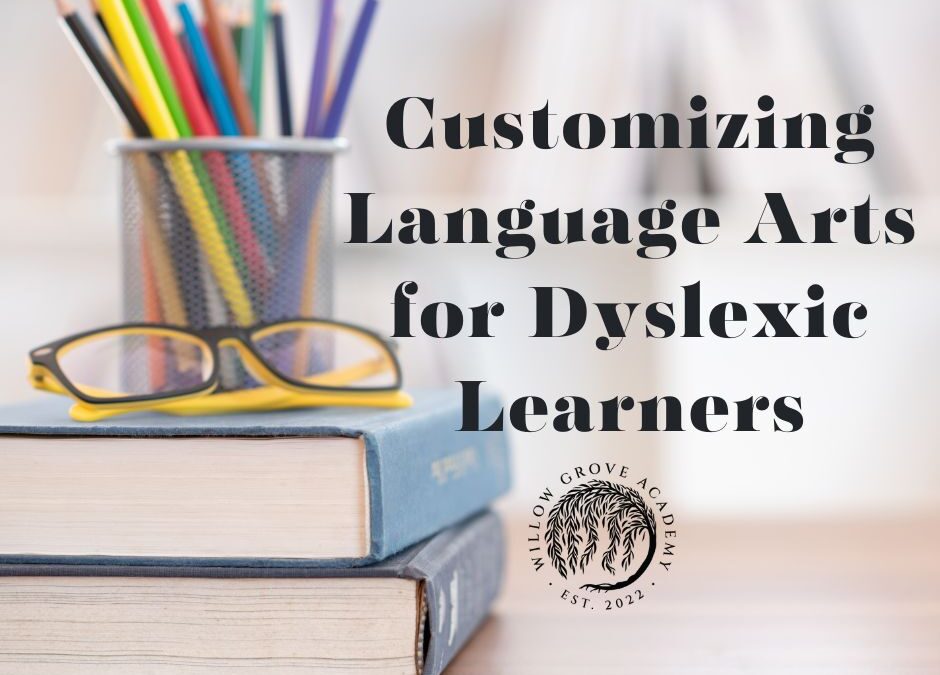Dyslexic learners need a customized approach to learning language arts.
It isn’t a difficult plan, it just looks different than how one would teach language arts to a neurotypical learner.
Start with reading instruction.
In order to see results with a child who is truly dyslexic, the reading instruction program needs to be Orton Gillingham based.
There are a number of programs out there that do not require formal Orton Gillingham training that are parent friendly. Do some research and think about which program you think will work for both you and your child.
Remember that the process of remediating reading with a dyslexic child is not a quick process. It might take a few months to see real results and it may take a few years for our child to “catch up”, if he ever does. He may never be an amazing reader and that is ok.
The goal is to get him to a place where you know he is working to his full capacity.
As you remediate his reading, you may notice a distinct difference between his reading level and his spelling level. Sometimes, his reading will take off but his spelling is still a work in progress.
Work on spelling separately so you aren’t holding back his reading progress.
Be sure to find a multisensory spelling program that is visual, auditory, tactile, and kinesthetic.
That is a sure way to make sure the spelling patterns will stick. Do not get discouraged if you find that you have to repeat some of the lessons over and over. This repetition is what will eventually allow him to learn his spelling patterns.
Take the same approach with grammar that you do with spelling.
A multisensory program is what you need. With any student, grammar study is incremental and involves learning the same concepts year after year. This will be the same with your dyslexic child. Don’t worry if certain concepts don’t stick right away. This is a long-term process, not something that happens overnight.
As his reading skills develop and get stronger, remember to take the stress off of his system when reading for pleasure or in other school subjects. Read to him or get audio books. This will allow him to focus on reading for pleasure (or to learn) without using all of his reading battery decoding words.
The entire process of working on language arts skills with your dyslexic learner can be long. It requires patience on your part and persistence as well. A systematic approach will ensure that your child is making the gains he is capable of making.
Once you get the hang of it, you can settle into a routine which will be most helpful for him.
Through your persistence, he will start to see his gains. Prioritize his language arts instruction over all of his other school work.
Reading skills take time, science, history and other academic subjects are easily acquired at any time throughout his school journey.

